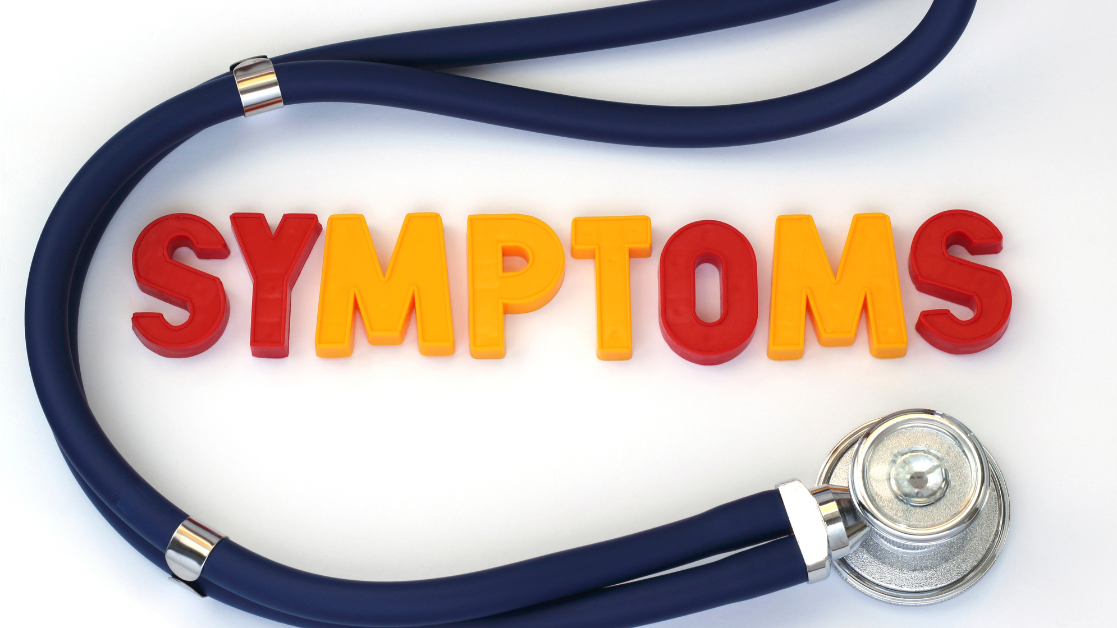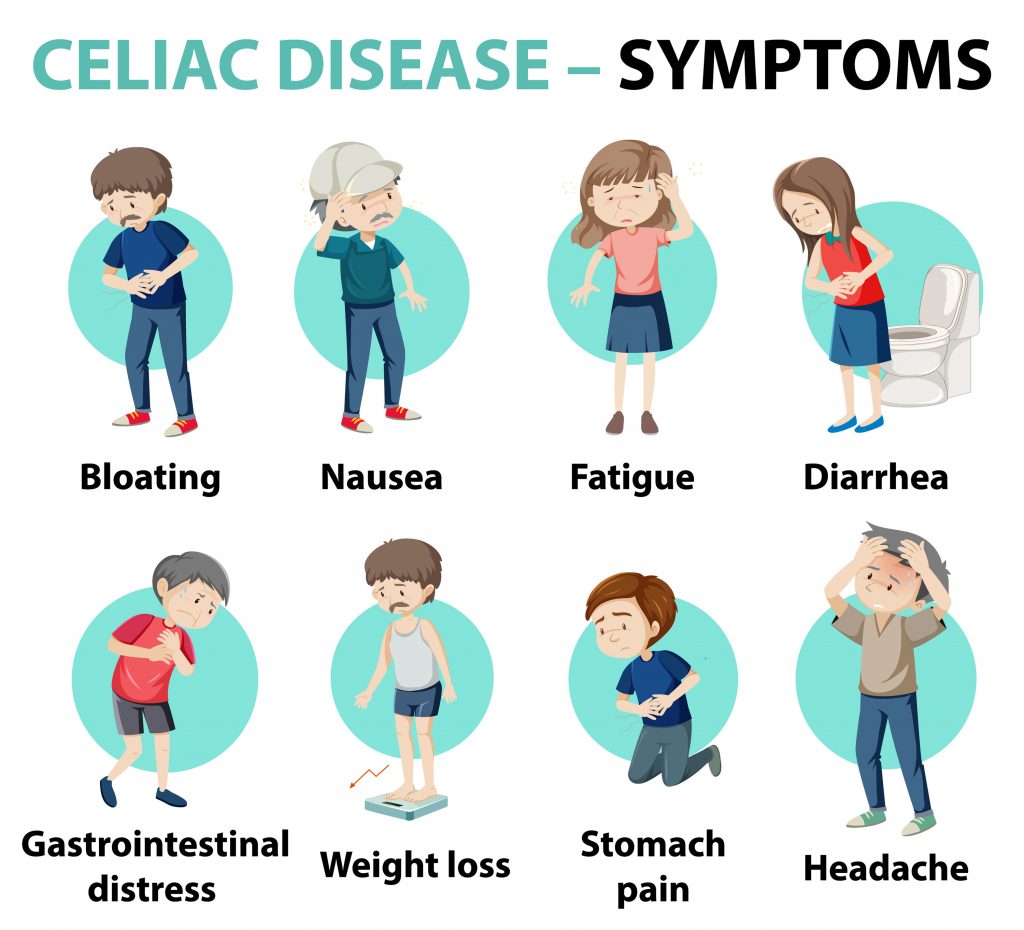Symptoms of Celiac Disease You Should Know

Celiac disease is one of those few disorders that has been brandished as the disease of the rich due to its awareness and understanding amongst people from higher socio-economic backgrounds.
Though folks from different strata of society are too plagued with it, it is still looked upon as an elitist illness with no definite cure.
To define it in medical jargon, celiac disease is a chronic digestive and immune disorder triggered by eating foods containing gluten. More than 1 million celiac disease cases per year are reported in India, while 1 in every 133 Americans is found to have celiac disease.
One might think that such staggering numbers would ensure enough public awareness of the disease, but that sadly isn’t the case.
Very little is known about the disease, from its symptoms to its diagnosis. There have been people who, though suffering from celiac, were unaware of what they were suffering from.
In this blog, we’ll tackle this issue by shedding light on all of the possible symptoms that have been medically ascertained so far in people who suffer from celiac disease.
We’ll also look closely at how you can manage your celiac disease symptoms and keep them in check.
Let’s dive right into it!
Common Symptoms Of Celiac Disease
There are a host of symptoms affiliated with celiac disease, and not one certain which can deduce you as a patient. Nevertheless, here are a few that you must watch out for:
- Anxiety & depression: Do anxiety and depression bog you down? Are your days getting glum and gloomier each day and causing you malaise? This could be a sign that you have celiac disease. Very few people are aware that celiac disease can cause mental distress due to indigestion of gluten and prolonged damage to the small intestine. If you have anxiety and some of the below-mentioned symptoms that we’ll cover, it could be well enough that you have celiac disease.
- Brain Fog: Another symptom people might think is not affiliated with celiac is brain fog. Confusion, forgetfulness, and a lack of focus and mental clarity accompany people with celiac disease. It makes carrying out day-to-day activities an uphill battle.
- Anaemia: Celiac disease affects the small intestine due to gluten consumption. The small intestine is also responsible for iron absorption. If your intestine has been continuously battered by gluten consumption, there is a high chance that your body won’t be able to absorb iron, leading to anaemia.
- Bone Density Loss: Bone density loss or osteoporosis is another symptom of celiac disease. The small intestine is responsible for the absorption of many nutrients, which includes calcium. The constant consumption of gluten hinders optimum calcium absorption leading to osteoporosis. If you experience weakness in your bones and easy fracturing, you should get tested for celiac.
- Peripheral Neuropathy: One of the most frequently reported neurologic symptoms of celiac disease, a multigenetic, T-cell-mediated autoimmune disorder brought on by a loss of gluten tolerance, is peripheral neuropathy. Peripheral neuropathy, like the symptoms mentioned above, is induced by the malabsorption of vitamins and minerals. People suffering from it usually experience weakness, numbness, and pain from nerve damage in the hands and feet.
- Migraine: When your body isn’t getting the nutrients it needs for optimal growth and functioning, you begin to experience migraines and headaches. This is another frequently seen symptom of celiac disease.
- Infertility: Women with celiac disease have a tough time conceiving kids. They encounter multiple abortions, delayed menarche, early menopause, amenorrhea, and reduced pregnancy rates. Many studies have shown that this is due to nutrient deficiency and autoimmune mechanisms.
How to manage your celiac disease symptoms?
Adopting a gluten-free diet is a key component of treating or managing celiac disease. This comes before any medications you may take to treat your worsened symptoms. In addition to promoting intestinal repair, a gluten-free diet will significantly lessen symptoms. To promote optimal health, some doctors may also prescribe vitamins and dietary supplements to their patients. Some may even suggest therapy and counselling to address problems like depression and weight loss associated with the disorder.

There could be a time when you unwittingly consume gluten. It might be challenging to distinguish which foods and products are gluten-free in the midst of the confusion because the market is overrun with them. Therefore, the best action if you accidentally consume gluten would be to ease up and drink lots of water. Drinking enough water will help your body eliminate waste products and stop diarrhoea. It would be advisable to consult your registered dietician or a general practitioner if you continue to feel unwell.
Celiac disease is something people live with for a lifetime, so it must be kept in check. You can track whether your celiac disease is under control with the help of routine examinations and screenings. Even following a strict gluten-free diet, many patients have nutritional deficiencies due to intestinal damage. Following up with your doctor can help you learn enough about these problems to approach them clinically.
Conclusion:
The symptoms of celiac disease are many, but to ascertain if you have the disease, celiac testing would be recommended. It will help you know if you’re a patient and curb the damage, if any, done by gluten consumption. Often, people end up consuming gluten and experiencing the above symptoms but don’t ever get clinically diagnosed. Many even go on to live with it for a lifetime. This can be problematic if they don’t have their gluten consumption in check. The life expectancy of those with the celiac disease under control is often normal. Patients only have issues if they do not strictly follow a gluten-free diet, which might eventually result in serious small intestinal damage along with the other long-term concerns stated above.
 MY JOURNEY
MY JOURNEY About Me
About Me Early life
Early life Diagnosis
Diagnosis CELIAC DISEASE
CELIAC DISEASE Symptoms & Diagnosis
Symptoms & Diagnosis Treatment & Follow Up
Treatment & Follow Up GLUTEN - FREE LIVING
GLUTEN - FREE LIVING At Home
At Home At School
At School At Social Events
At Social Events
 Grocery Shopping
Grocery Shopping COMMUNITY OUTREACH
COMMUNITY OUTREACH Gluten Free Meetup
Gluten Free Meetup Workshops
Workshops Webinars
Webinars COVID-19 Camps By Gluten Free Jio
COVID-19 Camps By Gluten Free Jio  Mid Day Meal
Mid Day Meal Beyond Celiac
Beyond Celiac Real Stories of Celiac
Real Stories of Celiac RESOURCES
RESOURCES Restaurant Dining Cards
Restaurant Dining Cards Recipes
Recipes Gluten Free eBook
Gluten Free eBook Gluten Free Jio App
Gluten Free Jio App RECOGNITION
RECOGNITION TRAVEL DIARY
TRAVEL DIARY



